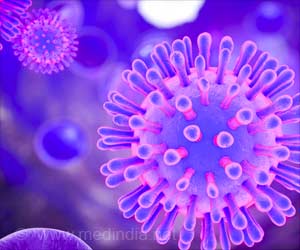Pixel super-resolution using wavelength scanning uses the sample under the microscope repeatedly using different wavelengths of light.

‘Pixel super-resolution technique uses different wavelengths of light to produce sharper images of pathogens from stained or unstained samples.’





The technique scans the sample under the microscope repeatedly using
different wavelengths of light. Using this information, a special algorithm
combines the scans into one in which individual pixels are smaller than the
original.The researchers tested the microscopy technique on blood samples and pap smears, demonstrating high resolution imaging, both on stained and unstained samples.
Source-Medindia







